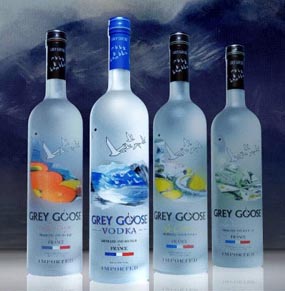But how effective are our powers of reason? More often than not, they are highly subjective, self serving and misleading. At the very least I would say that we have an inflated sense of our ability to reason consistently or objectively.
A recent
article in the Wall Street Journal helped demonstrate this claim, highlighting the flaws and inconsistencies of the vital and influential wine rating system. One winemaker/statistician wondered why the same batch of wine he put out would win medals at one competition and absolutely nothing at the other. So he began a study of professional wine tasters and sommeliers. And what he and others have found is that the judges and ‘experts’ of these competitions are – surprise, surprise – inconsistent and often (unknowingly) very subjective and biased.
In one test, red food coloring was put into multiple glasses of a white wine to make it look like glasses of rose, Bordeaux, sherry etc. Although they were all the exact same wine, the testers thought they tasted like they were labeled. Similarly, 57 wine experts were served two glasses of the same wine. But they were poured from an expensive label bottle and a cheap table wine. A significant portion of the ‘experts’ chose the expensive label over the cheap one.
Okay, you say, we are easily tricked, and these tactics are not exactly fair. It gets better. The same wine/statistician also found out that wine experts were inconsistent. In a test of a hundred or so wines, a few were unknowingly ‘resubmitted’ or re-tested. The research found that the same expert rated the same wine differently each time (sometimes by as much as 4 points). GM Pucilowski, the
chief judge at the California State Fair wine competition, finally allowed the results of this study to be published last year:
 “I’m happy we did the study,” said Mr. Pucilowski, “though I’m not exactly happy with the results. We have the best judges, but maybe we humans are not as good as we say we are.”
“I’m happy we did the study,” said Mr. Pucilowski, “though I’m not exactly happy with the results. We have the best judges, but maybe we humans are not as good as we say we are.”
Eureka!
I remember a 20/20 episode a few years ago where 10 relatively young New Yorkers were asked what their favorite vodka was. They all said things like “Grey Goose is totally my vodka”, and “Stoli all the way.” Then they took them out to a bar in Manhattan to do some blind taste tests of vodka and Cosmopolitans. They all hated the drinks with Grey Goose and Stoli, but they overwhelmingly loved one brand in particular: the economically priced Smirnoff vodka. The elite image and high cost of the product changed the way it tasted!
These studies remind us just how blind we are to ourselves. Whether you are Renee Descartes or the ‘reasonable’ Richard Dawkins, you may not want to put all your eggs in the human brain basket. Otherwise you will eventually look foolish.
One of the fundamental prerequisites for the Gospel is that belief that you/me (including your/my brain) are utterly insufficient to the task of life. Unfortunately, that reality is impossible to recognize or to make sense of on your own. Outside Help is needed.
Unmerited grace and limitless forgiveness do not make ‘sense.’ They are, however, very Wise.
1 Corinthians 1:20-23:
Where is the wise man? Where is the scribe? Where is the debater of this age? Has not God made foolish the wisdom of the world?
For since, in the wisdom of God, the world did not know God through wisdom, it pleased God through the folly of what we preach to save those who believe.
For Jews demand signs and Greeks seek wisdom,
but we preach Christ crucified, a stumbling block to Jews and folly to Gentiles,



 “I’m happy we did the study,” said Mr. Pucilowski, “though I’m not exactly happy with the results. We have the best judges, but maybe we humans are not as good as we say we are.”
“I’m happy we did the study,” said Mr. Pucilowski, “though I’m not exactly happy with the results. We have the best judges, but maybe we humans are not as good as we say we are.”














Alex!
This is a great post. I couldn't agree with you more. Thanks.
Very interesting post. I wonder, though, if this study and that one someone posted about memory (with the picture cards and the taste testing) don't say more about people's snobby nature and our perceived need to have an opinion on everything (perhaps it says something as well about our, again, perceived need to rationalize choices which were made apart from reason in the strict sense), rather than our ability to utilize reason itself.
Great Post!
I think you're restating what scientists like Damasio have demonstrating for years. Read Descartes Error for an excellent view of Body-Brain-Mind matrix. Not only is mind embodied, but reason and emotion are mutually interdependent.
This post reminded me of a Dawkins talk about the strangeness of our Universe. Dawkins acknowledges that the world is so much grander that we can even imagine.
"Are there things about the universe that will be forever beyond our grasp, but not beyond the grasp of some superior mind?"
"We have this tendency to think that only solid, material things are really things at all."
Hear more:
http://www.ted.com/talks/richard_dawkins_on_our_queer_universe.html
Also, Rob Bell's "Everything is Spiritual" addresses the limits of reason in a fascinating way.